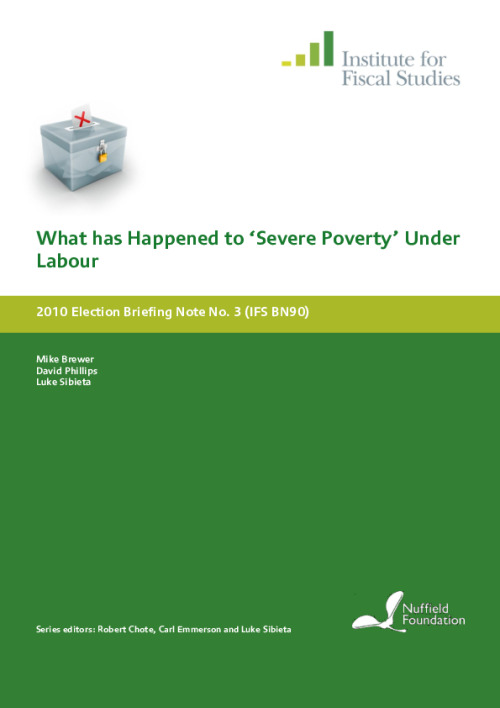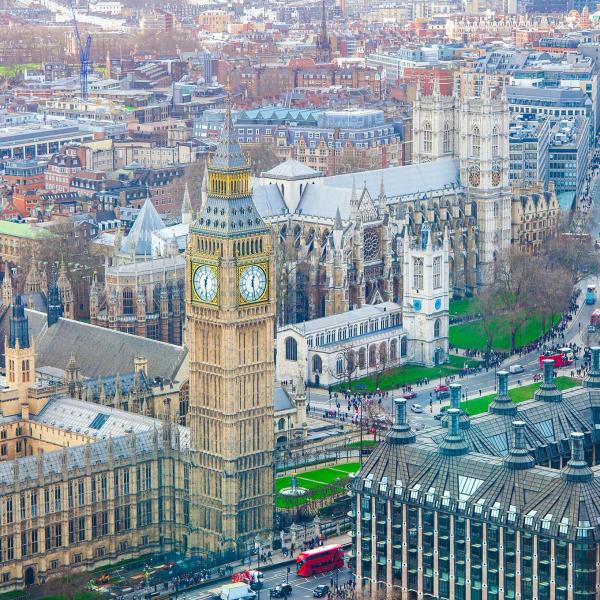Downloads

bn90.pdf
PDF | 2.11 MB
This election briefing note surveys a range of data sources and definitions. It finds strong evidence of an increase in the rate of severe poverty since 2004-05, mirroring a rise in the official poverty rate, although the rate of persistent poverty (i.e. where people remain poor for a number of years) does seem to have fallen under Labour, at least until 2007. But the evidence is less conclusive about whether severe poverty is now higher than when Labour came to power.
Authors

Mike Brewer

Research Fellow
Luke is a Research Fellow at the IFS and his general research interests include education policy, political economy and poverty and inequality.

Associate Director
David is Head of Devolved and Local Government Finance. He also works on tax in developing countries as part of our TaxDev centre.
Report details
- DOI
- 10.1920/bn.ifs.2010.0090
- Publisher
- Institute for Fiscal Studies
Suggested citation
M, Brewer and D, Phillips and L, Sibieta. (2010). What has happened to 'Severe Poverty' under Labour?. London: Institute for Fiscal Studies. Available at: https://ifs.org.uk/publications/what-has-happened-severe-poverty-under-labour (accessed: 30 June 2024).
More from IFS
Understand this issue

Sure Start achieved its aims, then we threw it away
15 April 2024

Social mobility and wealth
12 December 2023

Election Special: The UK economy since 2008
3 June 2024
Policy analysis

How do the last five years measure up on levelling up?
19 June 2024

The two-child limit: poverty, incentives and cost
17 June 2024

How have the size and shape of the UK state changed?
9 June 2024
Academic research

Income inequality in Ireland, 1987–2019
28 June 2024

Components of the evolution of income inequality in Sweden, 1990–2021
28 June 2024

The intergenerational elasticity of earnings: Exploring the mechanisms
3 June 2024